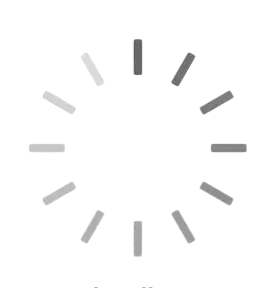Self-expression is a fundamental aspect of human nature, allowing individuals to convey their thoughts, feelings, and identities to the world. It encompasses various forms, from creative outlets like art and music to verbal communication and writing. The way you express yourself is more than just communication; it is an art form that reflects your innermost thoughts and emotions.
Table of Contents
ToggleUnderstanding Self-Expression
At its core, self-expression is the act of expressing one’s true thoughts, emotions, and identities without fear of judgment or repercussion. It involves conveying oneself authentically and honestly, whether through words, actions, or creative endeavors. Self-expression can take many forms, including art, music, writing, fashion, and even body language.
The Benefits of Self-Expression
Self-expression offers numerous benefits for individuals of all ages. Firstly, it serves as a powerful emotional release, allowing individuals to express and process their feelings in a healthy manner. By externalizing emotions through creative outlets or communication, individuals can experience catharsis and relief from pent-up stress or anxiety.
Moreover, self-expression fosters confidence and self-awareness. By expressing oneself authentically, individuals gain a deeper understanding of their own thoughts, feelings, and values. This self-awareness, in turn, boosts confidence and self-esteem, empowering individuals to navigate life with a sense of purpose and authenticity.
Additionally, self-expression plays a crucial role in building and strengthening relationships. When individuals express themselves openly and honestly, they invite others to connect with them on a deeper level. Authentic communication fosters trust, intimacy, and mutual understanding, thereby nurturing healthy and fulfilling relationships.
Obstacles to Self-Expression
Despite its numerous benefits, self-expression can be hindered by various obstacles. One common barrier is the fear of judgment or criticism from others. Many individuals hesitate to express themselves authentically for fear of being ridiculed, rejected, or misunderstood by peers, colleagues, or society at large.
Moreover, a lack of confidence can inhibit self-expression. Individuals who doubt their own worth or abilities may struggle to articulate their thoughts and feelings openly, fearing that they will not be taken seriously or valued by others. Low self-esteem can hinder creativity, self-expression, and personal growth.
Overcoming Barriers
Overcoming barriers to self-expression requires courage, resilience, and self-acceptance. One strategy is to cultivate self-acceptance and self-compassion, acknowledging and embracing one’s flaws, imperfections, and vulnerabilities. By fostering a positive self-image and inner sense of worth, individuals can overcome fear and self-doubt, allowing for greater authenticity and self-expression.
Finding safe spaces for expression is also crucial. Whether through creative communities, support groups, or trusted friends and family members, having a supportive network can provide validation, encouragement, and constructive feedback, enabling individuals to express themselves more freely and authentically.
Additionally, practicing vulnerability can facilitate self-expression. By embracing vulnerability and opening up about one’s thoughts, feelings, and experiences, individuals can forge deeper connections with others and foster genuine intimacy and understanding.
The Role of Self-Expression in Mental Health
Self-expression plays a vital role in promoting mental health and well-being. By externalizing emotions and processing difficult experiences through creative outlets or communication, individuals can alleviate stress, anxiety, and depression. Art therapy, music therapy, and other forms of expressive therapy are widely recognized for their therapeutic benefits in promoting emotional healing and self-discovery.
Moreover, self-expression serves as a coping mechanism for managing life’s challenges and adversities. When faced with stress, trauma, or grief, individuals can turn to self-expression as a means of processing and making sense of their experiences, thereby fostering resilience and emotional growth.
Cultural and Social Implications
The expression of self is deeply influenced by cultural norms, values, and traditions. Different cultures may have varying attitudes toward self-expression, with some emphasizing collectivism and conformity while others celebrate individualism and creativity. Moreover, the rise of social media has transformed the landscape of self-expression, providing platforms for individuals to share their thoughts, opinions, and experiences with a global audience.
Encouraging Self-Expression in Children
Fostering self-expression in children is essential for their cognitive, emotional, and social development. Parents and educators can nurture creativity and individuality by providing opportunities for artistic expression, encouraging open communication, and validating children’s thoughts and feelings. By creating a supportive environment that values self-expression, adults can empower children to embrace their uniqueness and cultivate a strong sense of self.
Ways to Express Yourself
There are countless ways to express oneself, from traditional forms of artistic expression like painting, drawing, and sculpture to more unconventional outlets like gardening, cooking, and storytelling. Writing and journaling are also popular means of self-expression, allowing individuals to articulate their thoughts, feelings, and experiences in written form.
Finding Your Authentic Voice
Finding your authentic voice requires self-awareness, introspection, and courage. It involves embracing your uniqueness, honoring your values and beliefs, and expressing yourself honestly and openly. By letting go of the need for approval or validation from others, you can cultivate a sense of authenticity and integrity in your self-expression.
Self-Expression in Professional Life
Authenticity is increasingly valued in the workplace, with employers recognizing the importance of employees who can communicate openly, think creatively, and bring their whole selves to work. By embracing authenticity and leveraging your strengths and talents, you can build a personal brand that sets you apart from others and enhances your professional success.
The Intersection of Self-Expression and Identity
Self-expression plays a pivotal role in shaping identity and fostering a sense of belonging. By expressing ourselves authentically, we affirm our individuality and assert our place in the world. Embracing diversity and inclusion is essential, as it allows individuals from all backgrounds to express themselves freely and contribute their unique perspectives to society.
Challenges and Risks
Despite its numerous benefits, self-expression is not without its challenges and risks. Vulnerability to criticism, backlash, or rejection can deter individuals from expressing themselves authentically. Moreover, balancing self-expression with respect for others’ feelings and boundaries requires sensitivity, empathy, and tact.
Conclusion
In conclusion, self-expression is a powerful form of communication that allows individuals to convey their thoughts, feelings, and identities authentically. By embracing self-expression, we can foster personal growth, strengthen relationships, and promote mental health and well-being. Despite the obstacles and risks, the art of self-expression remains a fundamental aspect of human nature, enriching our lives and connecting us with others on a deeper level.
FAQs (Frequently Asked Questions)
-
- How does self-expression contribute to personal growth?
Self-expression promotes self-awareness, confidence, and emotional healing, facilitating personal growth and development. - Can self-expression be learned?
Yes, self-expression can be cultivated through practice, self-reflection, and exploration of different creative outlets. - What if I’m afraid of being judged for expressing myself?
Overcoming the fear of judgment requires courage and self-acceptance. Surrounding yourself with supportive individuals and finding safe spaces for expression can help alleviate this fear. - Is there a difference between self-expression and self-indulgence?
While self-expression involves authentically expressing oneself, self-indulgence focuses on satisfying one’s own desires without regard for others. It’s important to balance self-expression with empathy and consideration for others. - How can I find my unique way of self-expression?
Experimenting with different creative outlets, reflecting on your values and passions, and embracing your uniqueness are key steps in discovering your authentic voice and mode of self-expression.
- How does self-expression contribute to personal growth?
Do you like to read more Blog content? Read our blogs at PintoraBlogs








